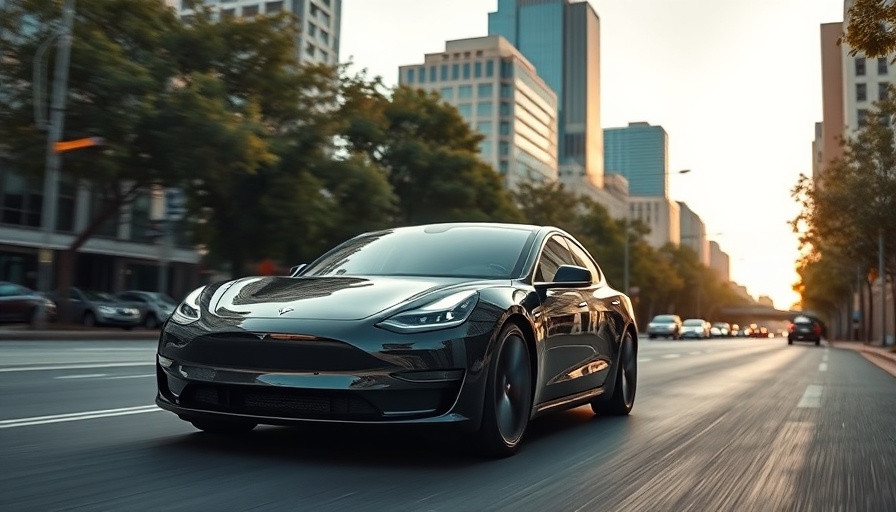
Tesla's Name Change: A Step Toward Transparency
Tesla has been compelled to rename its controversial "Full Self-Driving" (FSD) feature to "Intelligent Assisted Driving" in China, reflecting increasing scrutiny from regulators regarding misleading claims about its capabilities. This shift comes amid significant challenges Tesla faces in the Chinese market, where regulatory standards are stringent and expectations for safety are paramount.
Regulatory Pressures Highlight the Importance of Accurate Tech Branding
The change in terminology signals Tesla's recognition of the grave implications that come with its previous marketing approach. For years, the term "Full Self-Driving" has led many consumers to assume that their vehicles are capable of complete autonomy, which is not the case. Instead, Tesla has stressed that its vehicles are equipped with driver-assist capabilities that still necessitate human oversight. This ongoing confusion can have dire consequences, including safety issues evidenced by numerous incidents on the road.
Historical Context: The Evolution of Driving Assistance Technology
Driver assistance technology has been evolving rapidly over the last decade. However, the terminology used by automakers has often failed to keep pace with the actual capabilities of the technologies. Critics have pointed out that terms like "Autopilot" and "Full Self-Driving" create a misleading narrative, contributing to a false sense of security among users. The National Highway Traffic Safety Administration has also expressed concerns about how consumers interpret these labels.
The Implications of Misleading Labels on Innovation
The implications of how Tesla markets its technology are profound. Misleading names not only jeopardize consumer safety but also fuel debate over regulatory standards for modern automotive technologies. A balance must be struck between innovation and ethical marketing practices, especially as self-driving vehicles become increasingly common.
Market Response and Global Perspective
While Tesla adjusts its language in China, it continues to use the "Full Self-Driving" terminology elsewhere, putting it in direct conflict with regulators not just in China but also in the United States. Comparatively, companies like Waymo have adopted more transparent naming conventions, emphasizing the limitations of their technologies, which could inspire Tesla and others to follow suit.
Conclusion: A Necessary Shift for Greater Consumer Safety
This name change is not just semantic; it symbolizes a critical shift towards greater accountability in the tech industry. As the landscape of autonomous vehicles continues to evolve, the industry as a whole must prioritize clear communication of capabilities, ensuring consumers are fully informed about the technology they are using. The future of driving is here, but transparency must lead the way.
 Add Row
Add Row  Add
Add 
 Add Element
Add Element 

Write A Comment